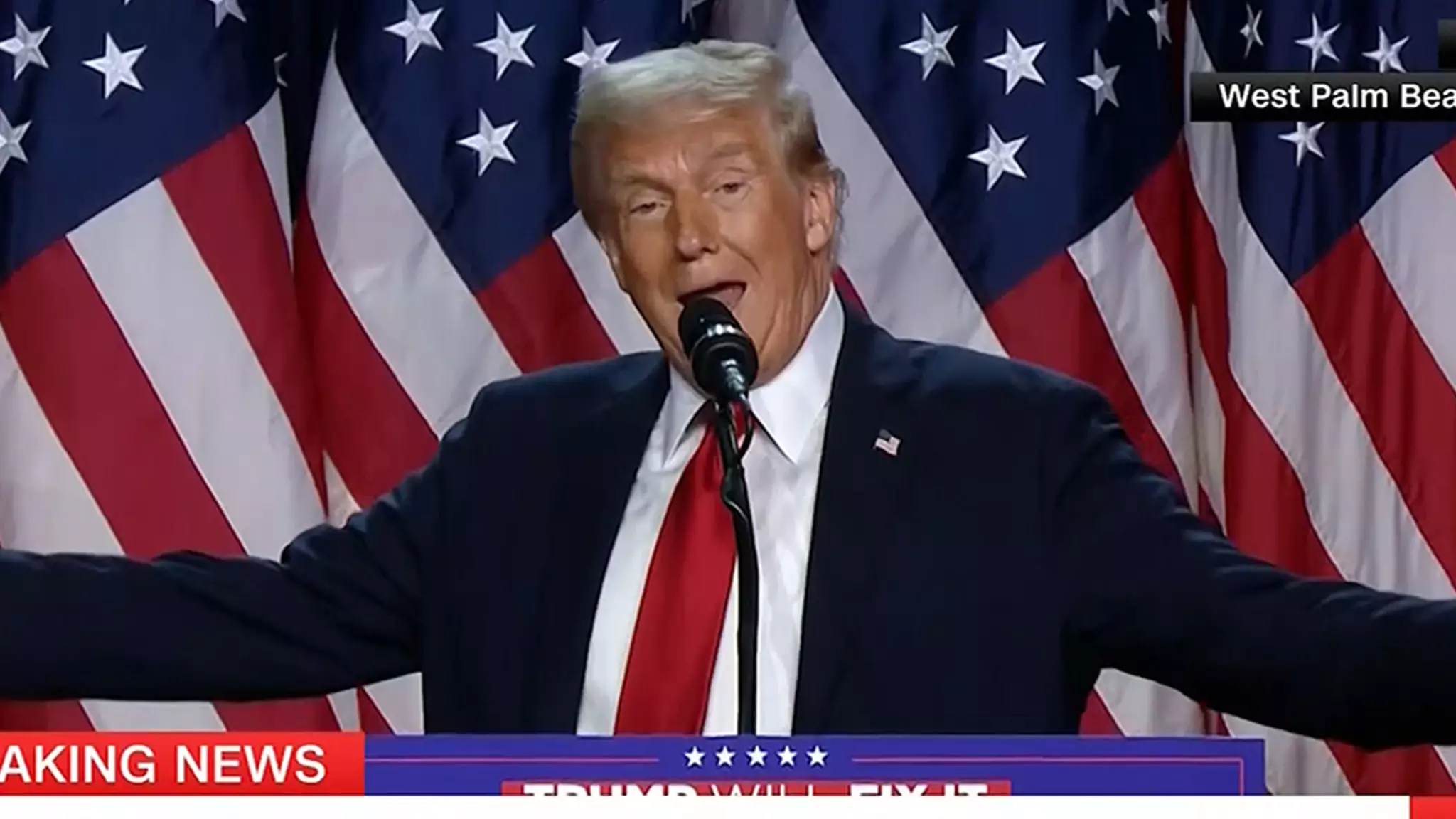In an unexpected turn of events, Donald Trump has been declared the winner of the 2024 presidential election, positioning him to become the 47th President of the United States. The conclusion of this highly contentious election came shortly before midnight on the West Coast, with FOX News being the first to project Trump’s triumph over Vice President Kamala Harris. The election results saw Trump surpass the critical threshold of 270 electoral votes, a milestone that has sparked numerous discussions about the implications of his victory.
In a move reminiscent of his fervent campaign style, Trump took to the stage in West Palm Beach almost immediately after the announcement, flanked by his newly appointed Vice President, J.D. Vance. With characteristic bravado, Trump proclaimed intentions to foster national healing following what many observers have described as one of the more divisive electoral cycles in recent history. His commentary was not limited to healing—the former president also expressed satisfaction with the dual victories of winning both the popular and electoral votes.
The consequential nature of this win has been amplified by the Republican Party regaining control of both chambers of Congress, a scenario that could potentially streamline Trump’s policy initiatives moving forward. This new political landscape positions the GOP to enact legislation aligned with Trump’s controversial and often polarizing agenda.
Trump’s win is not merely numerical; it’s steeped in historical significance. He becomes the first president since Grover Cleveland to reclaim the presidency after a hiatus, making him a part of a very select group of American leaders. This remarkable return is underscored by the fact that Cleveland’s second term occurred over 130 years ago. What makes this victory even more remarkable—and contentious—is Trump’s status as the first convicted felon to attain the presidency. Although his sentencing in New York State had been anticipated for later this month, the outcome of the election has effectively put those proceedings on hold.
As the nation braces for Trump’s presidency, the political environment is more polarized than ever. Trump adopted a defiant tone, celebrating victories in crucial swing states like Georgia and North Carolina, while foreshadowing potential challenges ahead as Harris had not officially conceded. The implications of Trump’s return to power extend beyond the electoral results; they delve into deeper societal rifts that could hinder bipartisan cooperation.
Moreover, the presence of notable figures at Trump’s victory celebration—including his wife Melania, Robert F. Kennedy Jr., and business magnates such as Elon Musk—signals a coalition of interests that could shape the future of American politics. The intertwining of celebrity, politics, and governance will undoubtedly influence public perception and policy.
As America stands at the threshold of another Trump administration, the future is fraught with anticipation and trepidation. With a divided electorate and a brewing storm of legal challenges faded temporarily into the background, it remains to be seen how Trump will navigate the complexities of his presidency. The coming weeks and months will be critical in determining not just the policies that will come to define his term but also the broader implications for the nation in a time of unprecedented division.

